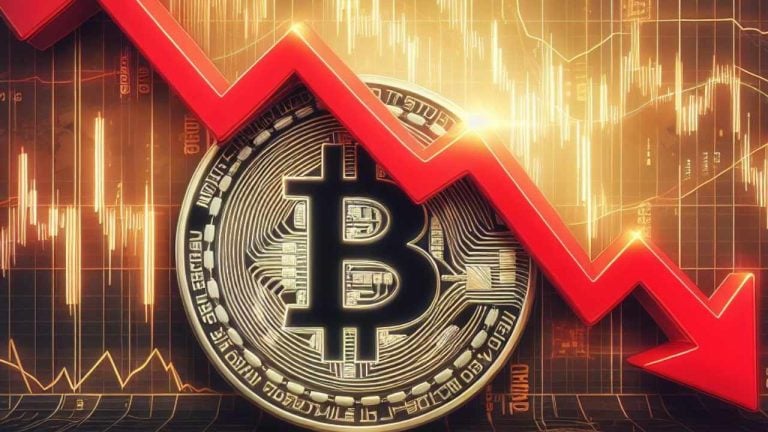
Jim Cramer's Bitcoin Prediction
Jim Cramer, the host of CNBC's Mad Money show, has recently expressed caution regarding the investment in bitcoin and the newly launched spot bitcoin exchange-traded funds (ETFs). However, he clarified that he is not as strongly opposed to these investment vehicles as Gary Gensler, the chairman of the U.S. Securities and Exchange Commission (SEC), is. Cramer acknowledged that bitcoin has been around for 15 years and is a well-established asset, and therefore, he does not discourage speculation as long as investors conduct thorough research.
Jim Cramer, a former hedge fund manager and co-founder of Thestreet.com, a financial news and literacy website, has been closely monitoring the bitcoin price outlook. He specifically focused on how the approval of spot bitcoin ETFs by the SEC could impact the trajectory of the cryptocurrency.
The anticipation of the SEC approving spot bitcoin ETFs drove the price of bitcoin above $47,000. However, following the approval, the price experienced a significant decline, dropping to nearly $40,000 on Friday. As of now, BTC has recovered slightly and is trading at $41,589. Cramer shared his thoughts on the BTC price decline on the social media platform X, stating, "Nasty beginning to the bitcoin selloff." He also mentioned that there might be an attempt to support the price in the coming days.
Cramer's remarks regarding the launch of spot bitcoin ETFs received some criticism from individuals who argued that the launch was not a failure. They pointed out that bitcoin ETFs had already surpassed silver as the second-largest commodity ETF and had attracted substantial inflows within a short period.
Interestingly, many users on the X platform view Cramer's bearish statements about bitcoin's price as a bullish sign. The "Cramer effect" has become a meme in the crypto community, as BTC often behaves opposite to what Cramer predicts. If he expresses optimism, a bearish swing is expected, and vice versa.
Despite his skepticism, Cramer stated that he is not entirely against investing in bitcoin. He referred to JPMorgan Chase CEO Jamie Dimon, who advised people to stay away from bitcoin but acknowledged that it is their personal choice. Cramer echoed this sentiment, describing the situation as "caveat emptor," emphasizing the need for individuals to understand what they are investing in and the limited amount of funds allocated to these ETFs compared to the increase in the price of bitcoin.
Addressing SEC Chair Gary Gensler's statement that approving spot bitcoin ETFs does not mean endorsing bitcoin, Cramer reiterated that he is not as opposed to these new investment vehicles as Gensler is. He emphasized that bitcoin has been in existence for 15 years and has established itself as a reliable asset. While he does not discourage speculation, he advises investors to conduct their own research, even though he is unsure of what that research should entail.
Cramer's views on bitcoin have been varied in recent weeks. He previously mentioned that BTC is topping out, but also acknowledged that bitcoin is a "technological marvel" that cannot be eliminated and is here to stay.
What are your thoughts on Jim Cramer's advice and warnings about bitcoin? Let us know in the comments section below.
Frequently Asked Questions
What is the cost of gold IRA fees
Six dollars per month is the fee for an Individual Retirement Account (IRA). This fee covers account maintenance fees, as well any investment costs that may be associated with your investments.
If you wish to diversify your portfolio, you may need to pay additional fees. These fees vary depending on what type of IRA you choose. Some companies offer checking accounts for free, while others charge monthly fees for IRA account.
Many providers also charge annual management fees. These fees vary from 0% to 11%. The average rate for a year is.25%. These rates are often waived if a broker like TD Ameritrade is used.
How much should precious metals make up your portfolio?
Before we can answer this question, it is important to understand what precious metals actually are. Precious Metals are elements that have a very high relative value to other commodities. This makes them extremely valuable for trading and investing. Gold is today the most popular precious metal.
But, there are other types of precious metals available, including platinum and silver. While gold's price fluctuates during economic turmoil, it tends to remain relatively stable. It is also unaffected significantly by inflation and Deflation.
As a general rule, the prices for all precious metals tend to increase with the overall market. However, they may not always move in synchrony with each other. For example, when the economy is doing poorly, the price of gold typically rises while the prices of other precious metals tend to fall. Investors are more likely to expect lower interest rates making bonds less attractive investments.
Contrary to this, when the economy performs well, the opposite happens. Investors want safe assets such Treasury Bonds and are less inclined to demand precious metals. They are more rare, so they become more expensive and less valuable.
You must therefore diversify your investments in precious metals to reap the maximum profits. Because precious metals prices are subject to fluctuations, it is best to invest across multiple precious metal types, rather than focusing on one.
What is the Performance of Gold as an Investment?
Gold's price fluctuates depending on the supply and demand. Interest rates are also a factor.
Due to limited supplies, gold prices are subject to volatility. There is also a risk in owning gold, as you must store it somewhere.
Should You Invest Gold in Retirement?
It depends on how much you have saved and if gold was available at the time you started saving. If you are unsure which option to choose, consider investing in both options.
In addition to being a safe investment, gold also offers potential returns. It's a great investment for retirees.
Most investments have fixed returns, but gold's volatility is what makes it unique. Therefore, its value is subject to change over time.
This does not mean you shouldn’t invest in gold. Instead, it just means you should factor the fluctuations into your overall portfolio.
Another benefit to gold is its tangible value. Unlike stocks and bonds, gold is easier to store. It can be easily transported.
You can always access your gold if it is stored in a secure place. You don't have to pay storage fees for physical gold.
Investing in gold can help protect against inflation. You can hedge against rising costs by investing in gold, which tends to rise alongside other commodities.
Also, you'll reap the benefits of having some savings invested in something with a stable value. Gold usually rises when the stock market falls.
Another benefit to investing in gold? You can always sell it. Just like stocks, you can liquidate your position whenever you need cash. You don't even need to wait for your retirement.
If you do decide to invest in gold, make sure to diversify your holdings. Don't put all your eggs on one basket.
Do not buy too much at one time. Start with just a few drops. Then add more as needed.
It's not about getting rich fast. Instead, the goal here is to build enough wealth to not need to rely upon Social Security benefits.
Gold may not be the most attractive investment, but it could be a great complement to any retirement strategy.
Statistics
- You can only purchase gold bars at least 99.5% purity. (forbes.com)
- Instead, the economy improved, stocks rebounded, and gold plunged, losing 28 percent of its value in 2013. (aarp.org)
- (Basically, if your GDP grows by 2%, you need miners to dig 2% more gold out of the ground every year to keep prices steady.) (smartasset.com)
- This is a 15% margin that has shown no stable direction of growth but fluctuates seemingly at random. (smartasset.com)
- Contribution limits$6,000 (49 and under) $7,000 (50 and up)$6,000 (49 and under) $7,000 (50 and up)$58,000 or 25% of your annual compensation (whichever is smaller) (lendedu.com)














